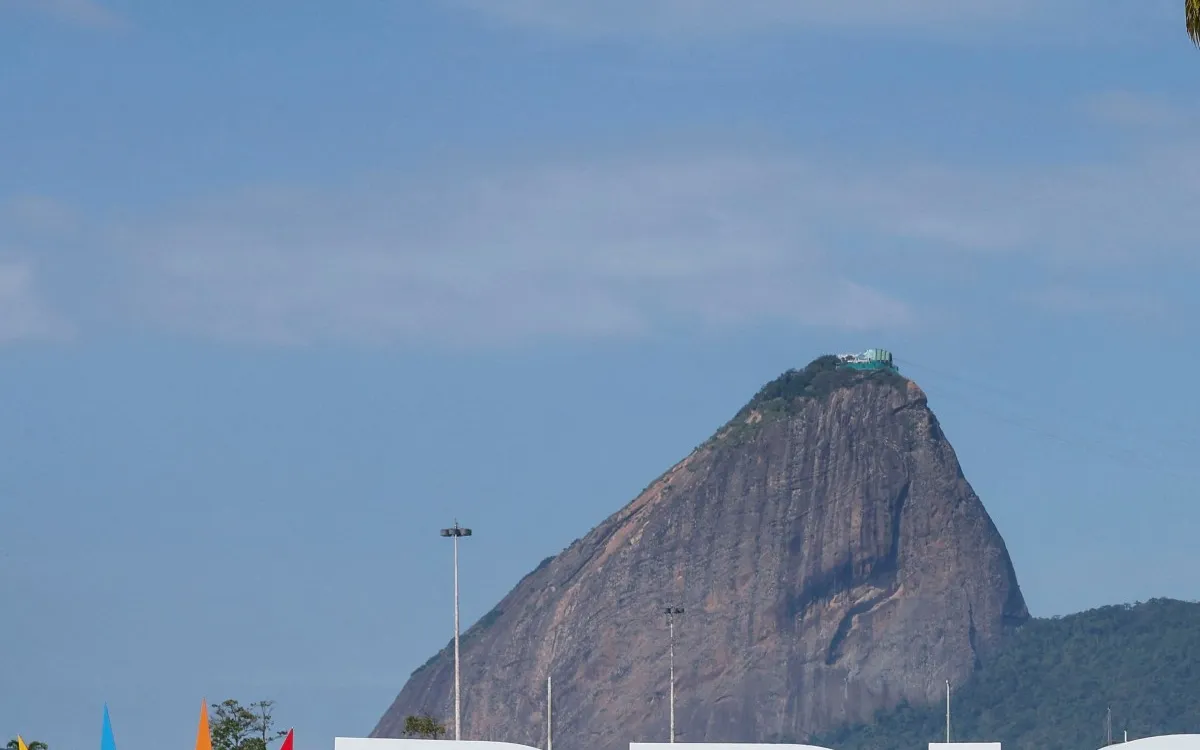
The leaders of the BRICS bloc have issued a strong rebuke against the recent military actions by the United States and Israel against Iran, labeling these strikes as a “blatant breach of international law.” This statement was part of a joint declaration made during a summit held in the vibrant city of Rio de Janeiro, Brazil. During the summit, BRICS members also emphasized their unwavering support for the establishment of a Palestinian state, showcasing the bloc’s commitment to addressing global humanitarian issues.
Interestingly, while the BRICS declaration addressed the escalating tensions in the Middle East, it notably remained silent on the ongoing conflict in Ukraine, which has been marked by Russian aggression for nearly four years. Instead, the declaration criticized Ukraine’s military operations on Russian territory, reflecting the complex geopolitical dynamics within the bloc. This careful wording comes against the backdrop of increasing trade tensions with the United States, particularly in light of protectionist measures introduced by the Trump administration.
The BRICS statement condemned “unilateral tariff and non-tariff barriers” that distort global trade and violate World Trade Organization (WTO) regulations. While it refrained from directly naming President Trump, the message was clear: the bloc is opposed to his protectionist economic policies. This comes at a critical time, as new US tariffs are set to be implemented, further complicating trade relations.
In response to the BRICS declaration, President Trump took to social media, warning that countries aligning with what he termed “anti-American policies” would face additional tariffs. He stated, “Any Country aligning themselves with the Anti-American policies of BRICS will be charged an ADDITIONAL 10% Tariff. There will be no exceptions to this policy,” highlighting the tensions between the bloc and the US.
The BRICS bloc, which initially formed in 2009 with Brazil, Russia, India, and China, has expanded significantly over the years. South Africa joined in 2010, and more recently, countries like Indonesia, Egypt, Ethiopia, Iran, and the United Arab Emirates have become members, bringing the total to ten. This expansion demonstrates the growing interest from emerging economies to join the group, with over 30 nations expressing interest in membership. Argentina, initially expected to join, withdrew its application following the election of President Javier Milei, a Trump ally.
The summit in Rio was led by Brazilian President Luiz Inacio Lula da Silva, with most member countries represented by their leaders. However, notable absences included Chinese President Xi Jinping, Russian President Vladimir Putin, and Iranian President Masoud Pezeshkian. Xi has attended all previous BRICS summits since assuming office in 2013, while Putin has limited his international travel following an arrest warrant issued by the International Criminal Court (ICC). Brazil, being a member of the ICC, would have been obligated to arrest Putin if he had attended.
Despite their absence, Russia and Iran were represented by their foreign ministers, and China was represented by Premier Li Qiang. This summit marked the first participation of Indonesia since its induction into the bloc.
In their declaration, BRICS member states expressed their “grave concern” regarding the deteriorating security in the Middle East, specifically condemning the recent Israeli and American attacks on Iran as a “violation of international law.” The conflict escalated on June 13 when Israel launched airstrikes on Iranian military and civilian sites, resulting in significant casualties. Reports indicated that at least 935 individuals were killed, including military leaders, while thousands were injured.
Iran retaliated with missile and drone strikes on Israel, leading to further loss of life. A ceasefire arranged by the US was established on June 24, yet the US had previously supported Israeli actions by providing military assistance. The BRICS declaration emphasized the necessity of upholding nuclear safeguards and the importance of protecting people and the environment during armed conflicts.
As the conflict in Gaza prolongs, the BRICS bloc denounced the use of starvation as a weapon of war and rejected any politicization of humanitarian aid. They expressed support for the United Nations Relief and Works Agency for Palestine Refugees (UNRWA), which has faced restrictions imposed by Israel. The bloc reaffirmed its position that both Gaza and the occupied West Bank should be integral parts of a future Palestinian state, with East Jerusalem as its capital.
The recent escalation of violence in Gaza has resulted in catastrophic humanitarian consequences, with tens of thousands of Palestinians killed and infrastructure devastated. The BRICS members called for immediate action to address the humanitarian crisis and uphold international law.
The BRICS declaration also condemned “unilateral coercive measures,” such as economic sanctions, asserting that they violate international law and adversely affect human rights. Countries like Iran and Russia have faced extensive US sanctions, which have been intensified over time due to geopolitical tensions. This has been particularly evident since Trump withdrew from the nuclear agreement with Iran and reinstated harsh sanctions.
With the global economy facing challenges exacerbated by Trump’s trade policies, BRICS expressed concerns regarding his tariffs regime. The bloc, which is expected to outpace global GDP growth in 2025, warned that protectionist trade policies could disrupt global trade and supply chains, undermining international development goals.
Additionally, BRICS condemned the tragic Pahalgam attack in India-administered Kashmir, where gunmen killed 26 civilians. Despite Indian Prime Minister Narendra Modi being present, the statement did not mention Pakistan, which India has accused of supporting the attackers. The BRICS statement called for “zero tolerance” for terrorism while rejecting double standards in counterterrorism efforts.
Notably, the BRICS declaration did not directly address the ongoing war in Ukraine, except to call for a “sustainable peace settlement.” The statement condemned Ukrainian strikes on Russian infrastructure, highlighting the bloc’s complex stance on this conflict.
Overall, the BRICS summit in Rio de Janeiro underscored the bloc's commitment to addressing pressing global issues while navigating the intricate web of international relations.